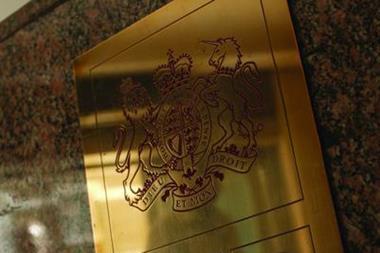The best thing that directors and officers can do to prevent D&O liability claims is to understand the rules and regulations that govern them. While this may sound obvious, three D&O experts say that many company directors are not aware of the breadth of their responsibilities and may not fully understand the activities of their company. The remedy is common sense, an understanding of the legislation, and the shouldering of personal responsibility for the company’s actions.
“You can do no better than to read the Turnbull Report,” says Marcus Campbell, insurance litigation partner, Beachcroft Wansboroughs. “It advocates basic common sense, particularly in internal control, the identification of risk, and the putting in place of methods to deal with identified risk.
Campbell says that directors must also take a personal interest in the company’s finances. “A director can’t just assume the finance director has the issues of the company’s solvency under control. You cannot abrogate your responsibilities; if you have concerns, you should investigate them.”
“The issue of wrongful trading under the Insolvency Act is particularly important as the economy slows down,” he stresses. “During the last recession, directors got off lightly, but this time they will be under scrutiny. If they have any doubt that the company can continue to meet its obligations, they should seek professional advice.
Directors should be concerned with more than just financial matters, says Campbell. “They can be personally liable over health and safety and environmental issues, which can attract criminal prosecutions. Directors should not just assume the company has a proper health and safety policy, they should check it. They should also check what environmental risks have been identified and what is being done to manage them.”
He recommends seeking advice before a matter becomes urgent. “You’re better off paying for good risk management advice up front, rather than having to pay large fees to defend claims later on. Fees incurred in defending directors can be substantial, as three sets of lawyers may be required.
The common factor in the cases that Campbell works on is a lack of high professional standards by directors. “It is just not acceptable to be a director without a good knowledge of the company and its activities,” he warns. “Generally, with smaller companies, there has not been the level of professionalism you would expect from the directors.”
Damien Coates, corporate manager of management liability, AIG Europe, highlights corporate governance as one of the main D&O issues. “It is important to have a sound corporate governance platform, ensuring that the directors are able to operate at arm’s length from management. Then, conflicts of interest are avoided and the directors can act in the interests of all stakeholders.
“Ensuring that you comply with regulations is important, particularly in the UK, in light of the increasing number of DTI (Department of Trade and Industry) and SFO (Serious Fraud Office) investigations,” he stresses. DTI director disqualification actions have increased 100% over the past four years.
He says another issue is the flow on from the US Securities and Exchange Commission’s Regulation FD (Fair Disclosure). Regulation FD requires transparency and timeliness in disclosing market-sensitive information. “There’s been a big trend in the number of securities class actions in the US in relation to accounting irregularities.”
Coates points out that the average accounting irregularity class action claim, which usually follows a profit warning, is US$20m. “CEOs and managers are under great pressure to meet the earning curve expectation of the market and ensure the share price is moving in the right direction,” he warns. “They have to balance this against the need to ensure the market is informed on a timely and transparent basis.
Coates also says that directors must take care to ensure their company trades within the Insolvency Act, which forbids trading when the company cannot cover its debts. “As companies sail closer to the wind and they have cash flow problems, there are going to be more insolvencies. It’s a matter of fact and it’s across the board - big companies and small companies. As soon as a director thinks they may be breaching the wrongful trading section of the act, they have a duty to bring in administrators.”
Lindsay Noble, professional and financial lines underwriter, Markel International, says that the legal and regulatory environment is changing at a rapid pace, increasing the need for expert advice. “It’s difficult for individual directors to keep abreast of new laws and legal precedents. They need access to expert advice. For example, employment law is a particularly important area at the moment, so in order to avoid failure to comply with a growing list of regulations in this field, a well staffed, expert HR team is invaluable.”
--
Christine Seib is a StrategicRISK reporter



















